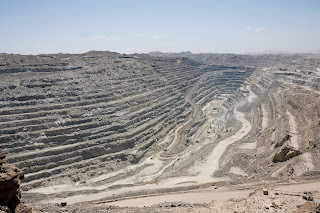What is Geology?And What are the branches of Geology?
Geology is the study of the Earth's structure, composition, and history, including the formation and alteration of rocks, the processes that shape the earth's surface and the history of life on Earth. It encompasses multiple sub-disciplines, that use various tools and methods, both on field and laboratory to understand the Earth's past, predict its future and finding natural resources.
Geology is the study of the Earth, its composition, structure, processes, and history. It encompasses many different subfields, including:
Roadmap of Geology 👇👇👇
Download
Mineralogy: the study of minerals, which are naturally occurring solid substances with a specific chemical composition and crystal structure.
Petrology: the study of rocks, which are aggregates of one or more minerals.
Stratigraphy and Sedimentology: the study of the layers of rock that make up the Earth's crust, and how they were formed.
Geophysics: the use of physics to study the Earth, including techniques such as seismology (the study of earthquakes), gravity and magnetism measurements, and radioactivity measurements.
Structural geology: the study of how the rocks and other materials that make up the Earth's crust are arranged and deformed.
Paleontology: the study of ancient life and fossils, which can provide information about past environments and evolution.
Hydrology: the study of water, including its distribution, movement, and quality.
Geomorphology: the study of the Earth's surface features and how they were formed by geological processes.
Economic geology: the study of how to locate, extract, and use natural resources such as minerals, fossil fuels, and groundwater
Remote sensing and GIS: The use of satellite imagery and other technologies to gather and analyze geospatial data.
Geologists use a variety of tools and techniques to study the Earth, including fieldwork, laboratory analysis, remote sensing, and computer modeling. They apply their understanding of the Earth to a wide range of practical problems, such as predicting and managing natural hazards, finding and developing natural resources, and assessing the impact of human activities on the environment
Questions
1. What is Geology? , Define Geology?
Describe Geology in short or Long?
2.What is mineralogy?
Study of mineral?
3. What is Petrology? Rock studies
4. What is Stratigraphy?
5. What is Geophysics in Geology?
6. what is Structural Geology?
7. What is paleontology?
8. What is Hydrology?
9. What is Geo Economics? Economic Geology
10. What is Geomorphology?
Etc.
Geologist tools
Remote sensing
Scope of Geology













Absolutely amazing bro
ReplyDeleteKeep it up 👍